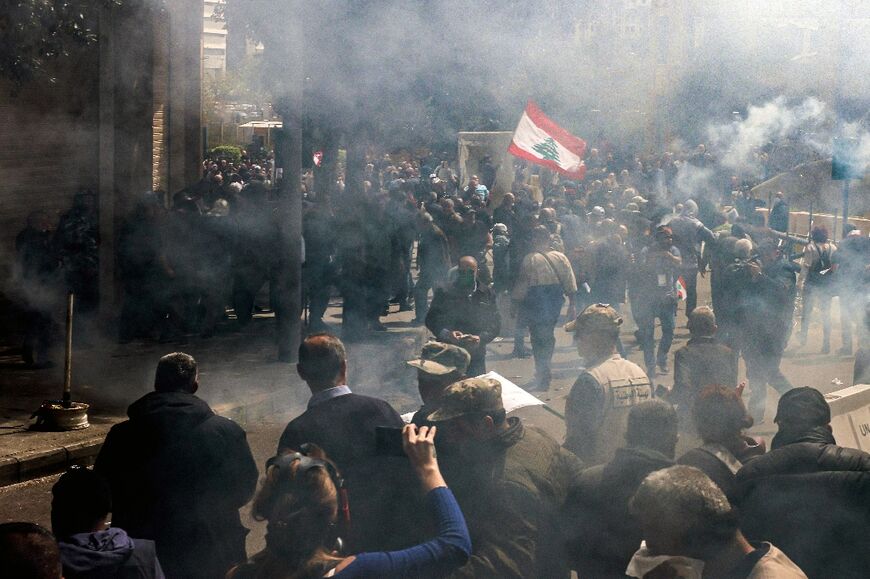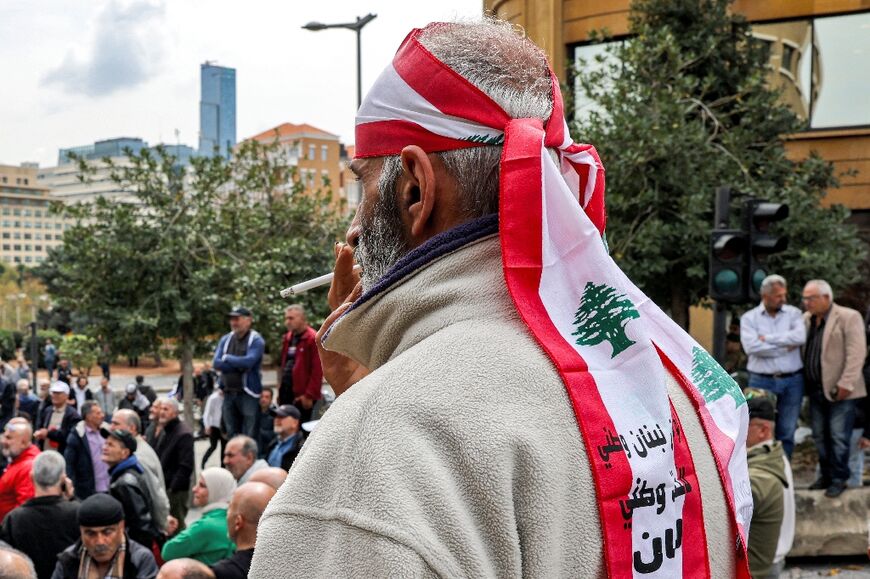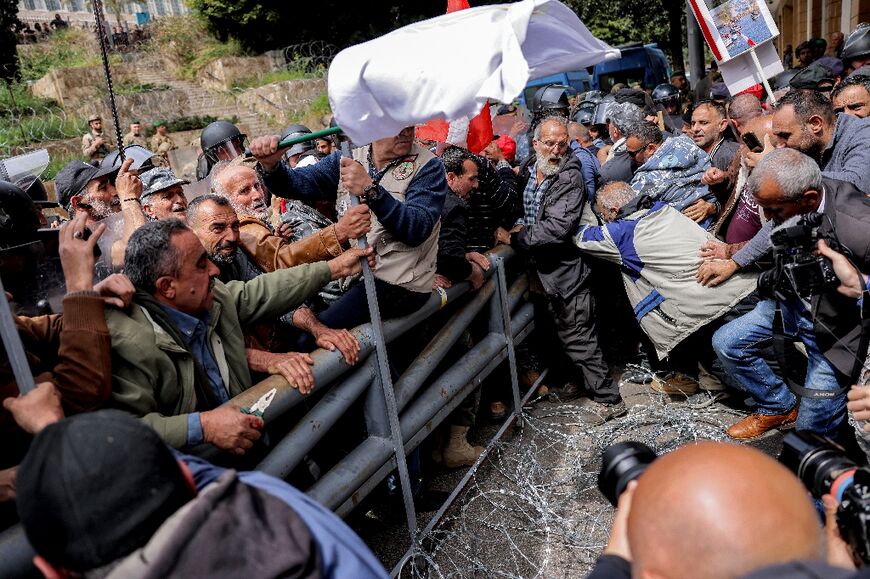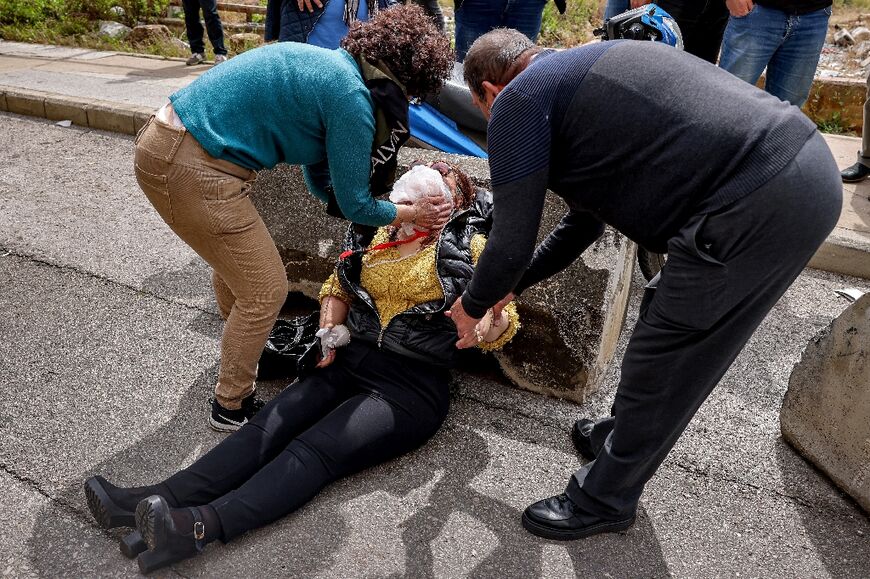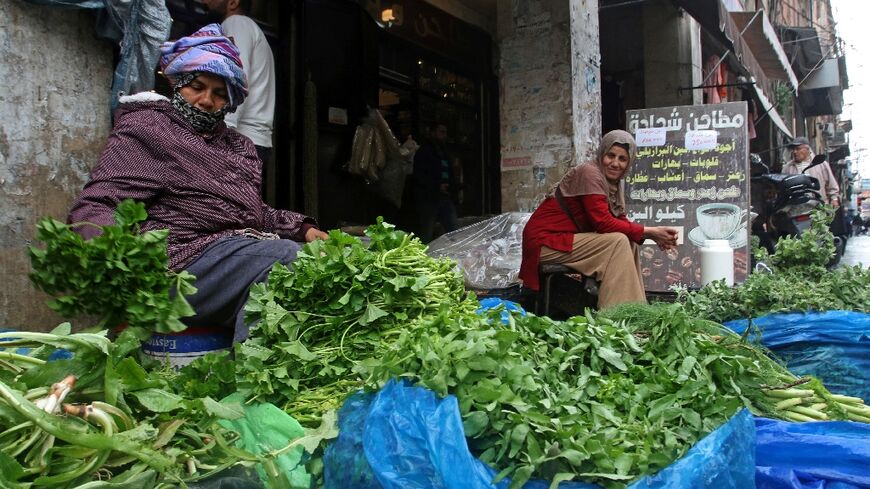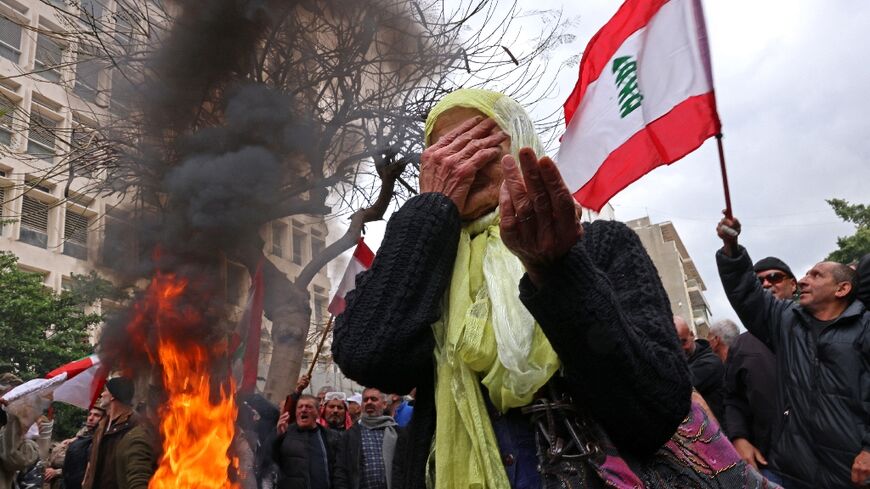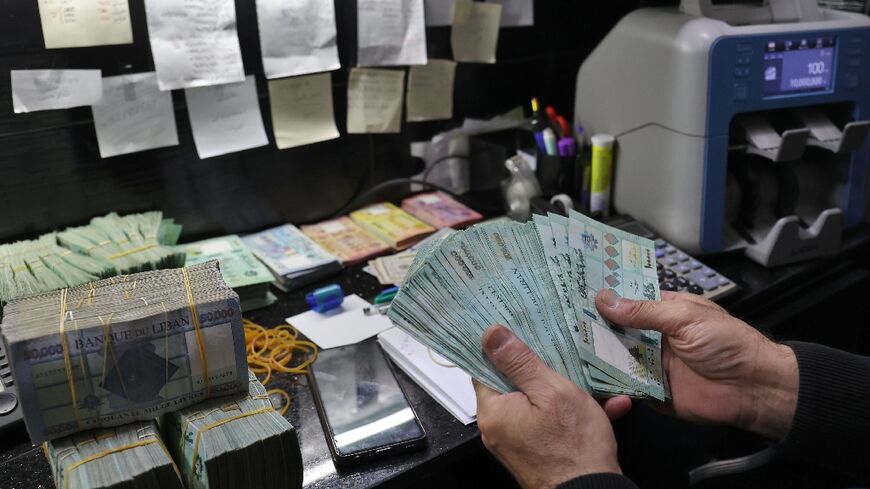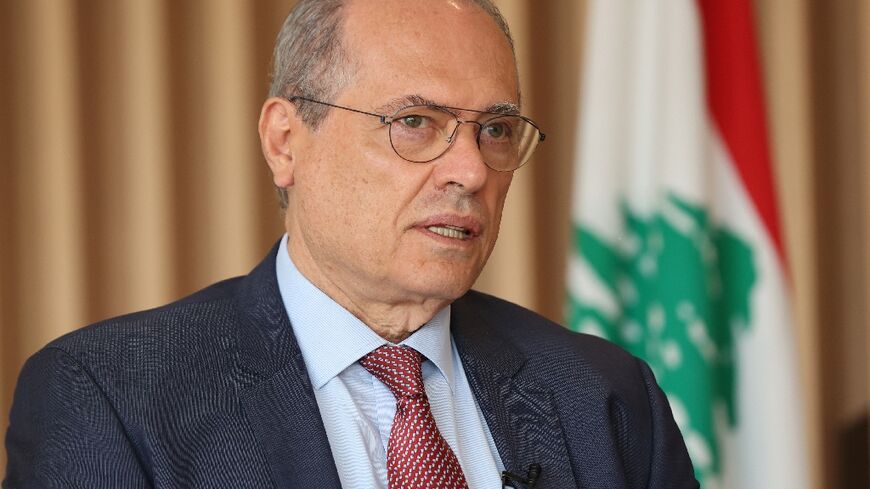Tear gas fired at angry protest in crisis-hit Lebanon
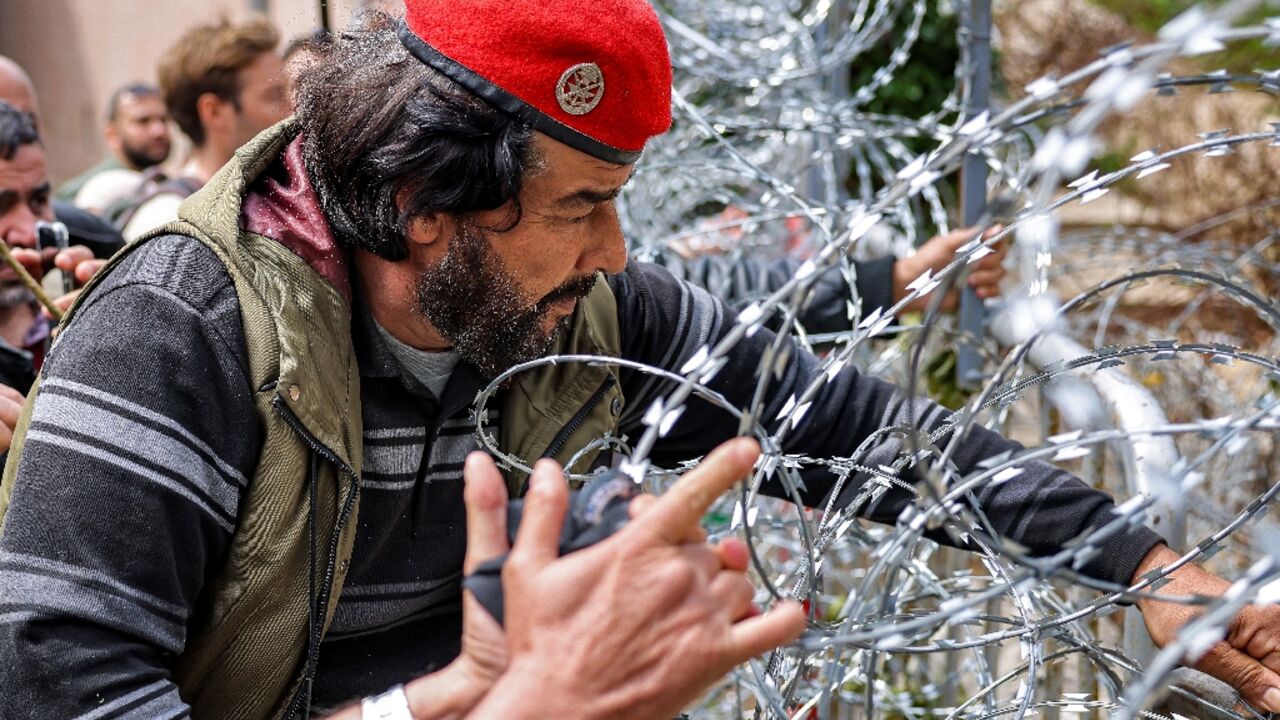
Security forces in crisis-hit Lebanon's capital fired tear gas Wednesday at a protest against deteriorating living conditions, as the currency plummeted to new lows against the dollar.
The country's economic meltdown, described by the World Bank as one of the worst in recent global history, has plunged most of the population into poverty according to the United Nations.
Many of the hundreds who protested in Beirut were retired servicemen whose army pensions have lost most of their value, and depositors locked out of their savings by cash-strapped banks.
"I used to make around $4,000, now my pension is worth $150," retired general Khaled Naous, 70, told AFP. "We're unable to secure basic necessities."
Security forces fired tear gas as some demonstrators tried to push through barriers to reach the Beirut compound which houses government offices, while other protesters hurled stones.
AFP correspondents said a demonstrator and a member of the security forces were wounded.
The Lebanese pound, officially pegged at 15,000 to the dollar, has been trading on parallel markets at more than 100,000 against the greenback -- a dizzying plunge from 1,507 before the collapse began in late 2019.
Lebanese banks have imposed draconian withdrawal restrictions since then, essentially locking depositors out of their life savings and infuriating Lebanese.
"The people are demanding their most basic rights" while the authorities "respond with tear gas," complained army veteran Amal Hammoud, 53.
A delegation of retired servicemen later met with caretaker prime minister Najib Mikati to discuss their plight.
- 'Selling my furniture' -
The currency plunge has been devastating for those on public sector salaries, and has triggered price hikes on imported fuel, food and other basic goods.
Supermarkets this month started to price items in dollars.
Retired teacher Hatem, 73, said he had given up meat and stopped using his car because costs were prohibitive.
"I am forced to be a vegetarian," he told AFP in downtown Beirut.
"How am I supposed to live? My pension is $150 while the generator bill is $200."
Many Lebanese rely on private generators for power because the cash-strapped state is only producing a few hours of electricity a day.
Some protesters shouted slogans against the political elite, which is widely blamed for the country's financial collapse.
Marwan Seifeddine, a father of five, told AFP he was barely making ends meet on a pension now worth just $50.
"I'm unemployed and I've been selling my furniture to feed my family," he said.
Political inaction has been a hallmark of the Lebanese economic crisis.
Since last year, the country has had no president and only a caretaker government, amid persistent deadlock between rival blocs in parliament.
In late 2019, Lebanon was rocked by unprecedented protests against the political class and deteriorating living conditions.


